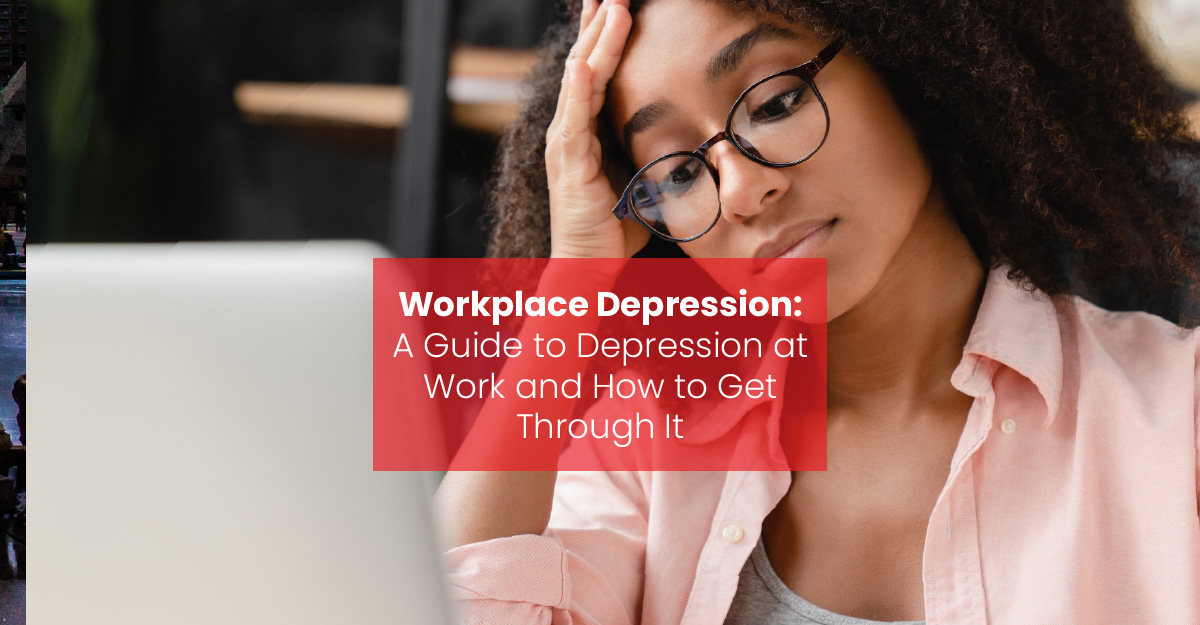
Workplace Depression: A Guide to Depression at Work and How to Get Through It
Depression is more common than we realize. According to research by Health think, seven million Nigerians suffer from it, making it a significant public health issue.
In Nigeria, there is a 25% prevalence of depression among young adults, 26.2% among the elderly, and 17.7% among internally displaced persons (IDPs), according to studies conducted.
There is a disproportionate prevalence of depression among genders. Despite depression being prevalent worldwide, females are more prone to depression than males. Studies have also shown that being female is a significant risk factor for depression in Nigeria.
According to the World Health Organization (WHO), depression is the leading cause of disability worldwide and a significant contributor to the global health burden. Yet few people openly discuss or seek help for their symptoms.
What causes depression? How can you spot it at work? And how can you get through it and return to your life? In this article, we’ll discuss all these questions and more, helping you understand how depression works and how you can recover if you are experiencing symptoms.
Related: Workplace Ergonomics: The Complete Guide
What is depression?
Depression is a common mental disorder. Globally, 5% of adults suffer from the disease characterized by low mood, loss of interest or pleasure, feelings of guilt or low self-worth, disturbed sleep or appetite, low energy, and poor concentration.
Related: 9 Habits Of Mentally Strong People In The Workplace
Signs and symptoms of depression
Depression can manifest in a variety of ways, both physically and emotionally. Some common signs and symptoms include fatigue, difficulty concentrating, changes in appetite or weight, insomnia or hypersomnia, feelings of worthlessness or guilt, and thoughts of death or suicide. If you are experiencing any of these symptoms, reach out for help.
Related: 8 Ways To Heal If You Experience Workplace Sexual Harassment
When should I see a doctor about my depression?
If you are experiencing symptoms of depression, it is vital to seek professional help. While it’s normal to feel down from time to time, depression is more than just a case of the blues. Make an appointment with a doctor if you have experienced any of these symptoms for over two weeks.
Related: Workplace Safety: 10 Tips For The Food Handling Industry
What causes Workplace Depression?
Several factors can cause workplace depression, including job insecurity, long hours, poor working conditions, and low pay. Other risk factors include being a woman, being in a low-status job, and having little control over one’s work. Often, job insecurity serves as the most common cause of workplace depression. When you feel like your job is in jeopardy or you are not doing well enough, it causes anxiety and stress, leading to depressive symptoms.
Related: Sleep Deprivation: A Major Health Problem in Today’s World
What to do if you are suffering from work-related stress/depression?
- It’s essential to seek help from a professional. It can be your doctor, a therapist, or a counselor.
- Talk to your supervisor or HR department about your feelings. They may provide support or change your job that can help reduce your stress levels.
- Take some time for yourself outside of work, whether this means going on vacation, taking up a hobby, spending more time with friends and family, or getting away from the workplace.
- Talk openly with your colleagues about what you are going through so they know how they can help you.
Related: How To Overcome Male Stereotypes And Support Men’s Mental Health In The Workplace
What medications are available for treating depression?
Medications that are available for treating depression include selective serotonin reuptake inhibitors (SSRIs), serotonin-norepinephrine reuptake inhibitors (SNRIs), tricyclic antidepressants (TCAs), monoamine oxidase inhibitors (MAOIs), and other antidepressants. SSRIs are the most commonly prescribed type of antidepressant.
If you are experiencing the symptoms of depression in the workplace, it is essential to seek help from your employee help program or a psychiatrist. Depression is not something you can shake off; it’s a condition that needs medical treatment and support from peers and family members. Although some organizations have taken steps to protect workers who experience symptoms of depression, more education and occupational health support for those suffering are vital. By using Medburys’ occupational health services, your employees will be in expert hands with high-quality services and high-value care. Contact us today!
Related: How to keep your employees healthy through workplace exercise programs
Related: Drug Abuse In The Workplace: The Consequences And How To Manage It

Pingback: Nine (9) habits of mentally strong people in the workplace
Pingback: How to Overcome Male Stereotypes and Support Men's Mental Health